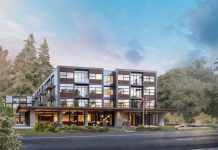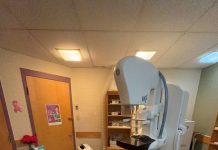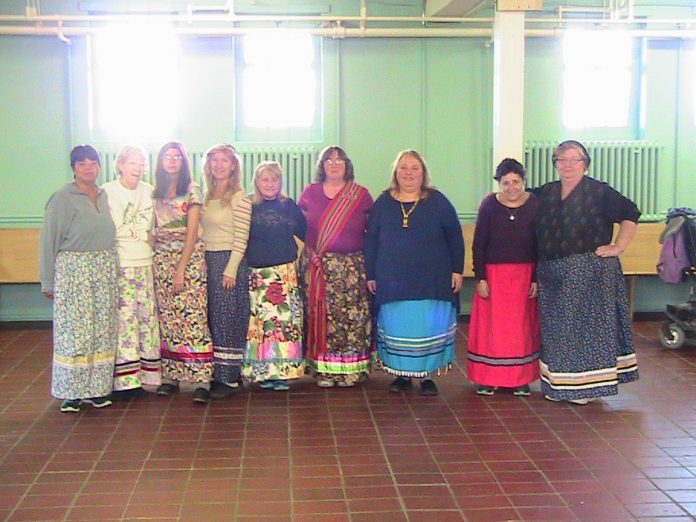
After years of building connections and creating community, the Muskoka Indigenous Friendship Community is seeking out a space to call their own.
Gravenhurst resident Theresa Buker is Métis and founded the Muskoka Indigenous Friendship Community in 2018 after feeling disconnected from other Indigenous people in Muskoka. She felt it was an important way to heal and build connections, so she found some like-minded people in the area and they’ve been meeting weekly ever since. The group recently formed a steering committee and they’re working to obtain non-profit status as well as secure a physical location to create a formal Friendship Centre in Muskoka.
“We’ve been doing our baby steps for a few years now and now we’re going to try and walk,” Buker said. “Friendship Centres are great because they’re open to anybody of an Indigenous background. It doesn’t matter whether they’re status or non-status or whether they fully understand what their heritage is, and it’s open to the non-Indigenous community as well, so they can come in and learn alongside us and be the other side of reconciliation.”
Since the closest Friendship Centres are in Parry Sound, Midland and Barrie, progress toward the creation of a local centre is an exciting development, Buker said. The group has worked hard to foster connection among its members, even throughout the limitations of COVID. They sold Every Child Matters buttons to fundraise for a Zoom membership so that their sharing circle could happen without interruption during the stay-at-home orders and restrictions.
The group has a waiting list of about 20 youth and their families that want to get involved in cultural activities, so their main goal is to find a free or low-cost place to gather and form a physical Friendship Centre.
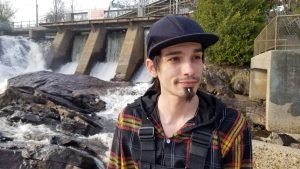
Bracebridge resident NisoMakwa is a two-spirit member of Qalipu Mi’kmaq First Nations whose name means Three Bear in English. He moved to Muskoka last year and noticed a lack of Indigenous representation in the community. He’s discovered more about the Native community in the region since then along with experiencing the ups and downs of living as an Indigenous person in the area.
“There is an established Indigenous community up in Muskoka,” he said. “There has been for quite some time, but they stick to themselves and I can understand being here the last year or so why.”
NisoMakwa now sits on the Inclusion, Diversity, Equity and Anti-Racism (IDEA) Advisory Group for Muskoka District Council. The group previously lacked any Native representation whatsoever, so he appreciates the opportunity to advocate for the interests of his community. He’s also a member of the Muskoka Indigenous Friendship Community and is working with the IDEA Advisory Group to help locate a space for them to gather.
It touched his heart to get in contact with the friendship community and see the amount of work they had done for Indigenous people in Muskoka, he said. He recently led a ribbon tying project to honour the victims of residential schools and having the support of the Muskoka Indigenous Friendship Community meant a lot throughout the process.
“It’s been great to be a part of it,” NisoMakwa said. “I didn’t know that the community was so established already when I first moved up here, so to be able to get connected with them through my art project and then be able to sit there and just talk with everybody during the ceremony as well and get connected that way, it’s a beautiful thing.”
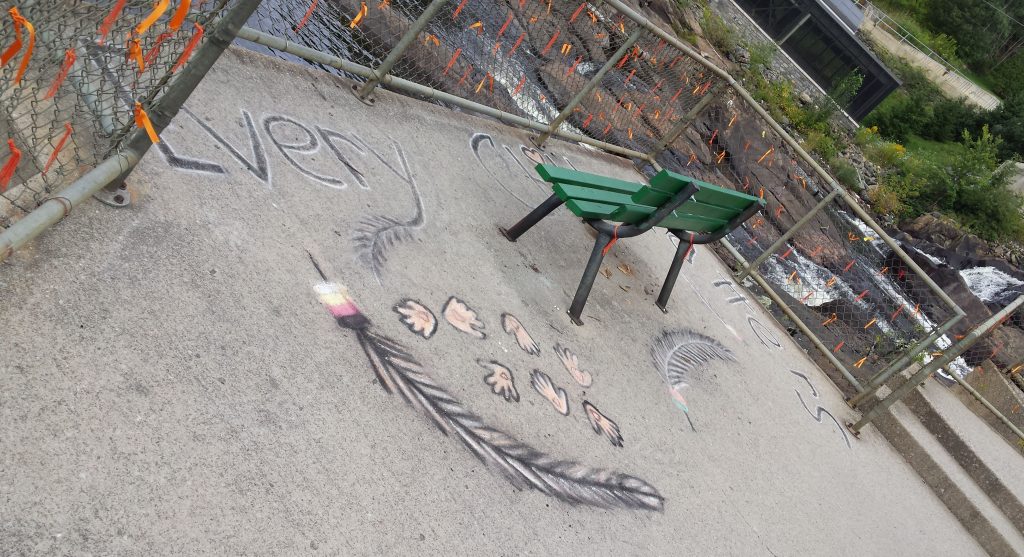
The Muskoka Indigenous Friendship Community has done some fundraising here and there to look after the immediate needs of the group, but they’re hoping to receive funding through the District of Muskoka to cover materials for upcoming workshops, books for their loan library and other supplies. Buker said they’ve applied for the district’s Pay It Forward grant for three years in a row, so they’re hopeful that this could be the year.
“In light of everything about Indigenous issues and the importance of helping us on our healing path, we’re really hoping that this year they will accept our proposal and grant us some money to move us forward,” Buker said.
As the Indigenous community in Muskoka grows closer, they’ve also worked to make connections with the non-Indigenous people in the region, but working towards reconciliation has its challenges. Buker has lived in Muskoka since the 70s and said she’s witnessed a level of racism that some people may not recognize or expect.
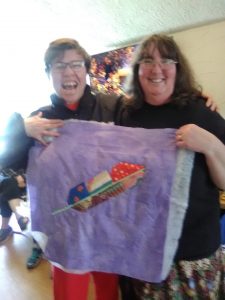
Buker remembers one of the few Indigenous people at her high school and hearing what she describes as a one-sided version of history. Her history teacher once called Louis Riel a madman, she said, and as a descendant of the Riel family, she took personal offence to that. She not only experienced racism in the community but also in her own home.
“Our pain is very real,” she said. “I grew up in a household where my Métis father died when I was young and I was made to put my heritage aside.”
Buker encourages non-Indigenous people to listen to the stories of their Indigenous neighbours and respect the fact that many people are still working through pain and anger.
Commemorative days like National Indigenous Peoples Day and National Day for Truth and Reconciliation can be uncomfortable when non-Indigenous people ask the Native community to perform by drumming a song or doing a powwow dance, she said, but these deeply spiritual traditions can be incredibly healing when the efforts are led by Indigenous people.
The time for healing is now, Buker said, and their group hopes a physical space for their Friendship Centre will be a part of that. She encourages non-Indigenous people to assist in their healing by “listening to our stories [and] helping to pick up the other end of the canoe for us,” she said. “It’s really hard if you’re trying to drag it along by yourself.”
Ribbons At Bracebridge Falls Removed In Preparation For Community Quilt Project


